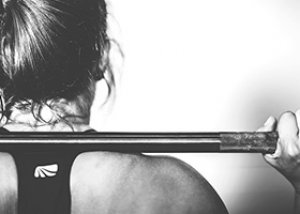
All iLive content is medically reviewed or fact checked to ensure as much factual accuracy as possible.
We have strict sourcing guidelines and only link to reputable media sites, academic research institutions and, whenever possible, medically peer reviewed studies. Note that the numbers in parentheses ([1], [2], etc.) are clickable links to these studies.
If you feel that any of our content is inaccurate, out-of-date, or otherwise questionable, please select it and press Ctrl + Enter.
Excessive exercise does not impair immunity
Last reviewed: 02.07.2025
 ">
">For a long time, doctors believed that too much physical activity, such as strenuous training, worsens the quality of immune protection, which can lead to frequent infectious diseases.
However, scientists have been able to debunk this myth: excessive physical activity does not affect immunity in any way.
British experts explained: training affects human immunity in the following ways:
- after the initial load, the number of leukocytes increases 10 times (this especially concerns immune cells);
- After the main load, the number of some cells decreases - this period can be indirectly called immunosuppression, which lasts for several hours.
Doctors associated the last stage with suppression of immune defense. But the information obtained during the experiments allowed them to prove that leukocytes do not die or disappear in an unknown direction, but only accumulate in other tissues - for example, in the lung tissue.
The cells return to their previous place within a couple of hours - this time would not be enough for the maturation of new leukocytes. Such structures, like scouts, "travel" throughout the body, looking for potential threats. Scientists specifically marked leukocytes, which allowed them to determine that the cells accumulate in individual organs, looking for infectious agents. One conclusion can be drawn from this: a temporary decrease in the number of killer cells is not evidence of immunosuppression. Concentrated immunocytes are simply distributed throughout the body.
"It is becoming clear that excessive physical activity does not make the body defenceless against the infectious process. In fact, modern science allows us to claim that intensive training activates the immune system," explains Professor John Campbell, a member of the faculty of medicine at the University of Bath.
So, doctors were wrong before. This misconception arose in the 80s, when a study was conducted in the United States: specialists interviewed athletes who took part in the Los Angeles Marathon. The main question was: did the participants experience symptoms of infectious diseases after the marathon? Since many athletes answered positively, this is where the erroneous conclusions were made. Since then, doctors began to warn athletes about the harm of too intense physical activity.
Today, scientists have managed to dispel all doubts about this: they analyzed information for several decades and proved the opposite. Experts are sure that factors such as bad habits, poor nutrition, and stressful situations cause much greater harm to the immune system. And the level of physical activity has absolutely nothing to do with it.
Details of the scientific work can be read on the pages of Frontiers in Immunology.

 [
[